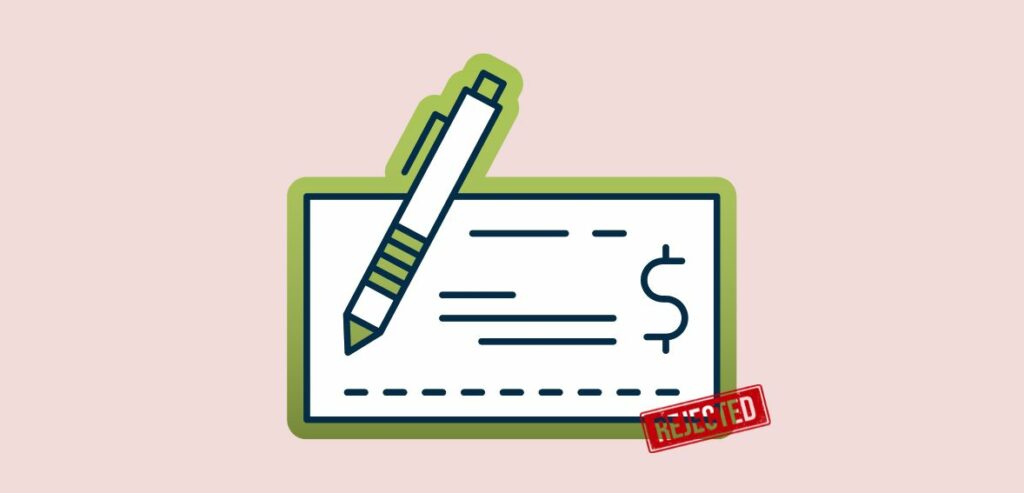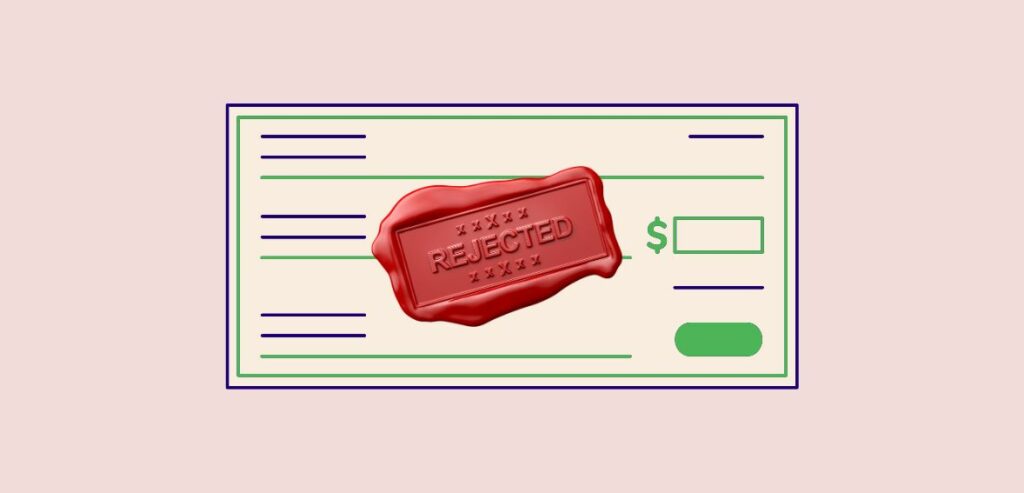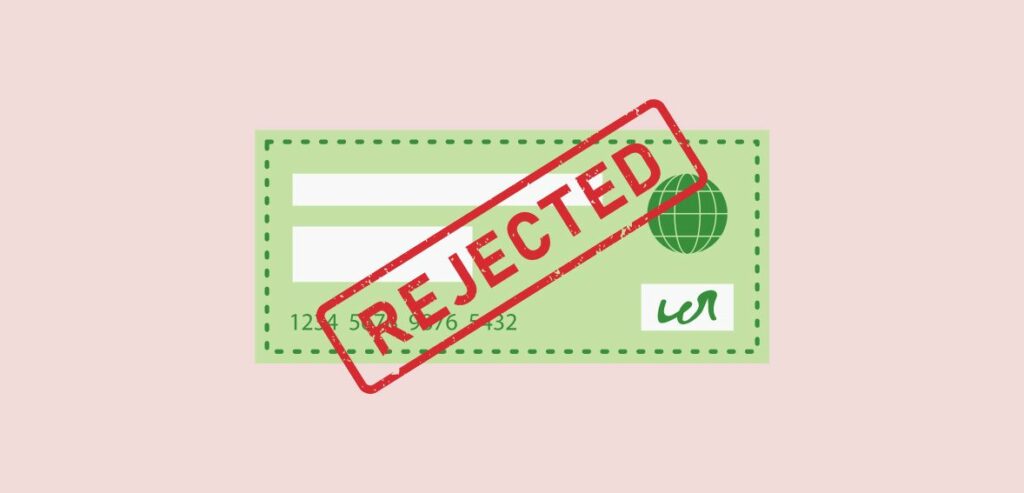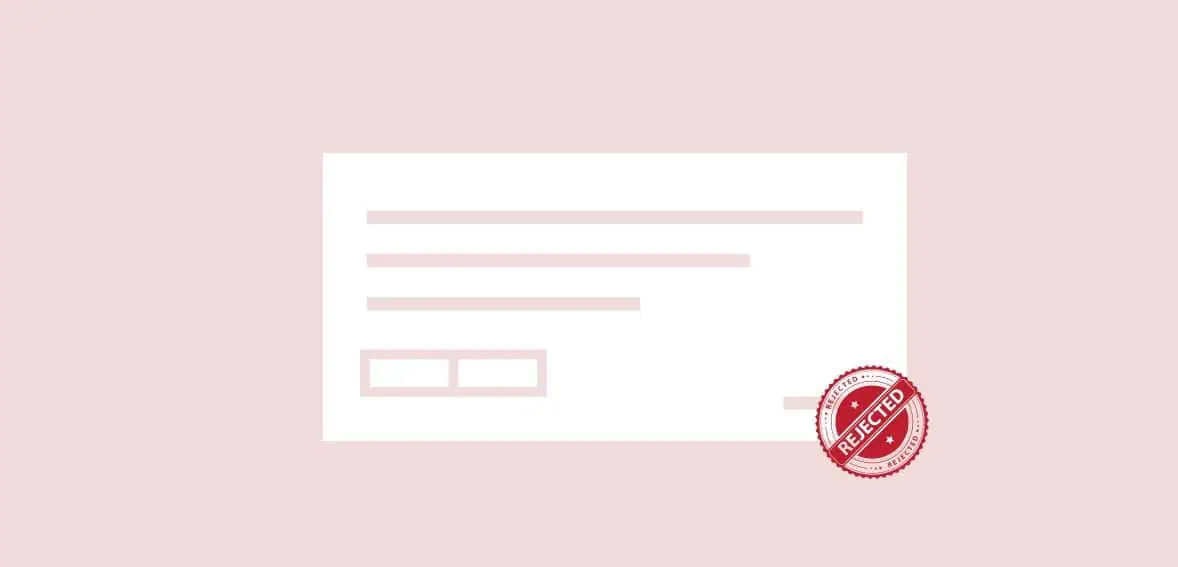A check return charge or returned check fee is the fee imposed by banks when a check is returned without being paid due to insufficient funds, a closed account, or other issues. These fees can vary from bank to bank, making understanding their nature and mechanics crucial. This article will analyze different aspects of check return charges, explain their purpose, outline typical costs, and offer strategies to avoid these fees.
What Do You Mean by Returned Checks?

A returned check occurs when a bank refuses to honor it, usually because the account of the person who wrote the check doesn’t have enough funds to cover the check’s amount. This is commonly referred to as a “bounced check,” and in banking terms, it’s known as having “non-sufficient funds” (NSF).
Bouncing a check often happens by accident, such as when you might overlook an automatic payment that was scheduled or if a deposit you anticipated does not clear in time.
A check may be returned in several additional circumstances. For example, if you write a post-dated check or ask for a stop payment and the check is deposited several months after it was issued, it may be returned. The bank may also turn down a check that lacks necessary information, such as a signature. Some people may intentionally write checks for amounts greater than what is available in their accounts, which is generally prohibited by state law.
Understanding Returned Check Fee
A returned check fee, also known as an NSF fee, is charged by banks to offset the administrative costs involved in processing failed check transactions. These fees also serve to deter the issuance of checks without adequate funds. Typically, the individual who wrote the check is responsible for the fee. Nonetheless, the recipient of a bounced check might also face financial consequences.
Say, for instance, you receive a check that bounces. You deposit it into your bank account, believing the funds will be added. Based on this assumption, you proceed to pay bills and make purchases. Should the check be rejected by the issuer’s bank, your bank will not credit the amount to your account. If you have already spent this amount, it could result in a negative balance in your account. Consequently, your bank may impose one or more overdraft fees on you.
If you promptly rectify a returned check, it won’t be reported to credit bureaus, so your credit score will remain unaffected. However, if a payment is more than 30 days after the due date, it will be reported and could negatively impact your credit score. If the payment issue isn’t resolved, the lender may apply a higher “penalty” interest rate if they decide to keep your credit card account active.
If the payment remains unmade, the lender might escalate the situation by involving a collection agency or pursuing legal action in small claims court. Such actions will be recorded on your credit report, adversely affecting your credit score.
What are the Common Causes of Bounced Checks?

To understand the reasons behind returned payment fees, we need to understand some common banking issues – incorrect account details, exceeding overdraft limits, and insufficient funds. Addressing these issues can help you avoid these fees in the future.
- Incorrect Account Information
Errors in banking details, such as typographical mistakes, omissions, or outdated information, can also trigger returned payment fees. Even minor discrepancies can result in invalid transactions. Note that incorrect information isn’t always the customer’s fault; sometimes, processing errors at the bank can occur. If you spot such an error, promptly contact the bank or involved party to rectify the issue.
Incorrect account details can have significant repercussions. For example, an extra zero accidentally added to a paycheck amount led to substantial fees from bounced checks issued before the error was noticed, costing a company over $5,000.
- Overdraft Limits Exceeded
Exceeding your account’s overdraft limit can lead to penalties, another common cause of returned payment fees. This occurs when you spend more than what’s available in your bank account or exceed your credit limit, leading to potential financial difficulties from accrued penalties and interest.
To avoid these situations, choose an overdraft protection program with low fees and interest rates and keep a vigilant eye on your balance. Relying too heavily on overdraft facilities can be costly, as they may affect your credit score. Maintain a buffer in your account to cover unforeseen expenses, which can help prevent overdrafts. If you have multiple accounts, ensure sufficient funds are available in the correct account before making transfers to avoid delays and associated fees.
- Insufficient Funds
A primary reason for returned payment fees is insufficient funds in your account to cover both the transaction and any associated costs, which results in NSF or an overdraft situation. To prevent this, regularly monitor your account activity and ensure there’s enough money available to cover your transactions. Setting up low balance alerts or automatic payments can also help manage your finances more effectively.
Overdraft protection might bring additional charges, so consider the costs versus benefits before opting in. Stay on top of payment due dates and prioritize your bills to avoid late fees and negative impacts on your credit score. Remember, your bank account may not have feelings, but accurate and timely information is required to function properly.
- Stale Date
A check might be rejected because it is “stale-dated,” meaning it wasn’t cashed within a typical six-month period. Banks are not obligated to honor checks that are over six months old. If you issue a check and the recipient forgets to deposit it until after this period, you might need to issue a new one.
It’s advisable to check with your bank regarding its policies on handling stale checks. While a bank may choose to process a check older than six months if it believes it will clear, it is not required to do so.
How Much Do Return Fees Cost?
The cost of a returned check fee varies by financial institution, typically ranging from $10 to $40. A recent survey found that major banks charged as much as $36, while the median fee across all financial institutions was $12. Overdraft fees, similar in nature to returned check fees, also vary between institutions. These fees can go up to $35, though the average fee last year was $15, reflecting a decrease from previous years as many banks begin to reduce or eliminate these charges.
You may be charged late costs by the recipient of the rejected check in addition to return payment or overdraft fees. When a check bounces, landlords, utility companies, and contractors frequently have specific procedures and demand immediate payment if the check is not clear. Writing a bad check can have an effect on your banking relationships in addition to the financial penalties. Financial institutions may record returned payments to consumer reporting organizations, which could impact your banking options even though they do not report them to credit bureaus.
Bounced checks may be reported to consumer reporting companies like ChexSystems but are usually not reported to credit reporting bureaus. Opening new bank accounts may be challenging in situations that happen frequently. Furthermore, late payments resulting from failed checks may eventually affect your credit score. The financial difficulties could also be exacerbated if your bank closes your account due to persistent problems with bounced checks.
What to Do If You Bounce a Check?

If you’ve bounced a check, there’s no need to panic. Here are three steps to help you handle the situation:
- Check if it’s cleared: When you realize you’ve sent a bad check, see if you can cancel or stop it. Although this may involve a fee, it’s generally lower than the cumulative costs of returned check fees.
- Contact the recipient: If stopping the check isn’t possible, inform the recipient about the situation. They might hold off on depositing it, potentially saving you from additional fees.
- Reach out to your financial institution: If this is your first instance of sending a bad check and you have a good banking record, your bank or credit union may waive the fees. This isn’t guaranteed, so if the fees are still applicable, ensure you have sufficient funds in your account to cover both the original amount of the check and any associated fees.
- Make payment arrangements: Act swiftly to cover the amount you owe. This helps prevent the situation from escalating into a larger debt issue.
- Consider alternative payment methods: If your account balance is often low, consider using other forms of payment, such as electronic transfers, debit cards, or peer-to-peer payment apps, to reduce the risk of bouncing checks in the future.
- Make habitual changes: If bouncing checks is recurring, consider setting up a budget or regularly balancing your checkbook. These habits can help prevent future financial mishaps and prove beneficial in the long run.
- Opt for Overdraft Protection: Consider overdraft protection, a service many banks and credit unions offer. This feature allows your financial institution to cover any shortfall in your account when a check is presented, using funds from another one of your accounts or future direct deposits. While overdraft protection can help you avoid NSF fees, financial institutions may charge a fee for using this service.
Remember that intentionally writing checks when you know insufficient funds in your account could lead to legal consequences. It’s crucial to manage your finances carefully to avoid such issues.
How to Prevent Check Return Fees?
To avoid check return fees, the most effective strategy is to ensure there is enough money in your account before issuing a check. Regularly monitoring your account balance and keeping track of all transactions can help prevent overdrafts.
Another method to dodge these fees is to set up overdraft protection. This allows the bank to cover any shortfalls in your account, preventing checks from bouncing. However, be aware that overdraft protection often involves its own set of fees.
Although they may appear minor, check return fees can accumulate rapidly, especially if multiple checks bounce. Furthermore, a history of bounced checks can adversely affect your credit score, potentially complicating future credit applications.
To avoid check return fees, familiarize yourself with your bank’s policies and any associated costs for returned checks. This information is typically available in the account terms and conditions or through direct communication with a bank representative.
When a check bounces due to a bank error, you might be eligible to waive the return fee, but this will usually require proof and proper documentation of the bank’s mistake. Lastly, check return fees are just one of many potential bank charges. Others include ATM withdrawal fees, monthly account maintenance fees, and additional overdraft fees. Comparing different banks and choosing an account that suits your financial needs can help minimize these fees.
Conclusion
Understanding returned check fees, or NSF fees, is essential for anyone who frequently writes or receives checks. Banks impose these fees to cover administrative costs and deter issuing checks without adequate funds. While the specific amount of these fees varies between financial institutions, they can range from $10 to $40 per returned check.
To avoid these fees, individuals should prioritize maintaining a sufficient balance in their accounts before issuing checks. Regularly monitoring account activity, setting up low balance alerts, and opting for overdraft protection can help prevent overdraft situations and subsequent fees.
Plus, promptly addressing bounced checks by contacting the recipient and financial institution can mitigate potential financial repercussions and maintain banking relationships. Ultimately, staying informed about bank policies and fees and practicing responsible economic management is key to avoiding the pitfalls associated with returned check fees.
Frequently Asked Questions
What is a returned check fee?
A returned check fee, or non-sufficient funds (NSF) fee, is charged when a check cannot be processed due to inadequate funds in the issuer’s account. Fees typically range from $10 to $40.
How can I avoid returned check fees?
Ensure your account has enough funds before issuing a check to avoid these fees. Regularly monitor your balance and set up low-balance alerts. Using electronic payments or debit cards can also help.
What happens if I accidentally issue a returned check?
If you issue a returned check, immediately inform your bank and the recipient. If the check hasn’t been cashed, you might arrange a stop payment, which may involve a fee. Promptly cover the payment to avoid further issues.
What are the broader implications of bouncing checks frequently?
Frequent bounced checks can lead to listing in databases like ChexSystems, affecting your ability to open new accounts or obtain credit. Persistent issues may result in your bank closing your account.

